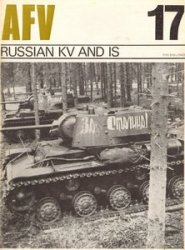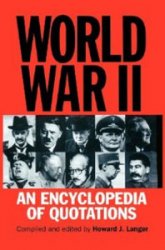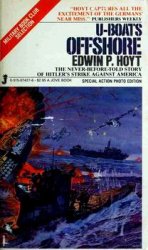All this changed, however, when in 1917 the war began to assume a more ideological character. This was due, firstly, to the Russian Revolutions, and secondly, to the entry of the United States into the conflict.
The first, would-be democratic revolution in Russia was welcomed in the West, since the alliance with tsarism had always been an embarrassment to liberals; it also made it easier for the American president, Woodrow Wilson, to present America's war on Germany as part of a crusade for democratic values. But in addition the Russian provisional government's attitude to nationality issues was different from that of the tsarist regime, which regarded nationalism as essentially revolutionary. Overnight Masaryk found that Russia was willing to recognise him as leader of a Czecho-Slovak movement and to recruit a Czecho-Slovak Legion from among Habsburg prisoners of war in Russia. The Czecho-Slovak army, some of whom were transferred to the western fronts and fought on the Allied side, became an important moral argument in favour of an independent state.
Even more dramatic was the liberating effect of tsarism's fall on Russia's own nationalities. One of the provisional government's first announcements was that it supported the establishment of an independent Poland; it also authorised the formation of Polish military units both in Russia and in France. Britain and France, no longer obliged to consider Russian sensibilities, officially recognised Dmowksi's National Committee as representing the Polish people. Across the former Empire national committees or other representative bodies sprang up, anxious to claim some form of autonomy, if not outright independence. In the Ukraine, for instance, nationalists formed a council, the General Rada, as early as 17 March, which expressed its hopes for autonomy; in the absence of any clear response from Petrograd, the Rada proceeded to proclaim autonomy in June and assembled a government. The provisional government did not welcome all these developments, which threatened disintegration of the state in time of war, but given the prevailing revolutionary ferment, it was powerless to halt them.
The second, Bolshevik Revolution in November introduced an entirely novel ideological pressure: apart from the effect on the military balance of Russian withdrawal, it put the fear of Communist revolution and social upheaval into both sides. Lenin's regime was also, however, a potential rival to the claims of nationalism: revolutionary socialism, by definition an internationalist creed, regarded the war as the product of imperialist rivalries and nationalism itself as a function of bourgeois societies, whereby the masses were kept in order by their economic masters. In a socialist order, Communists argued, nationalism would no longer be viable. At the same time, Lenin loudly supported the rights of peoples everywhere to national self-determination. The Bolshevik government published the Entente's secret treaties, revealing the cynical deals done over the heads of other peoples, and issued a clarion call to all peoples to rise up and take charge of their own destinies. Despite the gap between theory and practice in Russia, where the Bolsheviks rapidly established a ruthless dictatorship as far as their writ could run, this was a seductive and inflammatory message to the war-weary peoples of Europe.
The spectre of Bolshevism also galvanised Russia's subject nationalities into bailing out while they still could. Although their actions were in most places disputed by socialist elements sympathetic to the Bolsheviks, nationalists hastened to proclaim independence. Between December 1917 and March 1918 Lithuania, Ukraine, Finland, Estonia, Latvia, Bessarabia and Belarus all proclaimed their independence. In the Baltic states 'independence' throughout 1918 was conditional upon the presence of German troops; in the Ukraine the Bolshevik regime's hastily assembled Red Army managed to retake Kiev in February (Belarus managed to hold out until December), but was promptly driven out again by the Central Powers, with whom the Ukraine had concluded an alliance. Not content with the new republic's deliveries of grain, the Germans set up their own puppet regime in the Ukraine in April, but this Hetmanate lasted only as long as the German occupation.
In the meantime, American participation in the war had also radically reshaped the terms of debate. President Wilson saw the war's origins in a lack of democratic accountability, and preached the need for proper democratic control of governments, and their foreign policy, as essential for international harmony. Allied to this was Wilson's belief in the principle of national selfdetermination: just as individuals had political rights, so too did nations, and denial of those rights was clearly a source of conflict. Wilson's Fourteen Points, issued in January 1918, were intended as a riposte to the allure of Bolshevism, an affirmation of the value of a liberal but capitalist society. They were also dynamite under the governments of Eastern Europe, calling for the self-determination of nations and a redrawing of European boundaries along national lines. Only Wilson's thirteenth point mentioned a specific people, urging an independent Polish state, with 'free and secure access to the sea', but the implications for all the multinational empires were plain.11
Wilsonian self-determination encouraged nationalists everywhere, whose efforts to attract support or recognition bore fruit. The Allied governments, mindful of the consequences of applying the principle to their own colonial empires, only reluctantly went along with self-determination, because they
Could not afford to alienate their powerful 'associate'. In the course of 1918, Britain and France started expressing their support for the establishment of a Czecho-Slovak state, a Yugoslavia and a restored Poland.




 World History
World History


![The Battle of Britain [History of the Second World War 9]](https://www.worldhistory.biz/uploads/posts/2015-05/1432582012_1425485761_part-9.jpeg)






